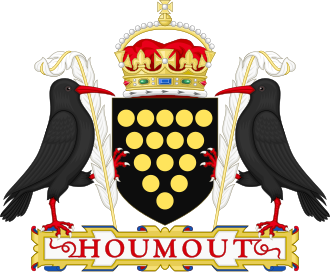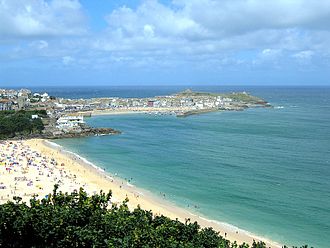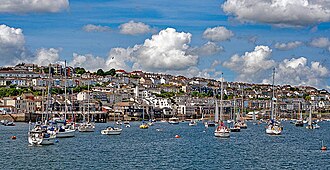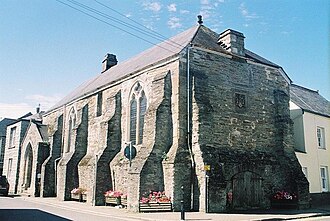Cornwall Last Name Origin, History, and Meaning
Where did the surname Cornwall come from? What does the surname Cornwall mean? Discover the history and meaning of the last name Cornwall and family migration on YourRoots Map.
Surname Cornwall Origin: What does the last name Cornwall mean?
The surname Cornwall has its origins in France around the early 11th century, according to YourRoots data. Initially associated with England from the 12th to the 19th century, Cornwall family records have also been found in countries like the United States, indicating a global spread over the centuries.
By the 20th century, the Cornwall surname had a significant presence in England and the United States, with records showing its prominence in these regions. Additionally, the surname has been found in countries like France, highlighting its widespread presence globally.
Cornwall Last Name History: Where did the last name Cornwall come from?
Origin of Cornwall Surname: Where does the last name Cornwall originate from?
According to YourRoots data, the surname Cornwall first appeared in records from France around the early 11th century. Please note that this reflects only YourRoots data for the exact Cornwall spelling and does not include other record sources or surname variations.
History of the Last Name Cornwall: What does the Cornwall surname history look like in the early days?
The Cornwall surname remained closely associated with England from the 12th to the 19th century. YourRoots data also shows Cornwall family records in countries like the United States, indicating global spread over the centuries.
Global Spread: Where can we find the Cornwall surname today?
By the 20th century, the volume of records with the Cornwall surname grew significantly in England and the United States. The Cornwall surname remains prominent in these regions. It appears in many countries, including France, highlighting its widespread presence.
Explore Cornwall last name heritage and Cornwall surname origin based on YourRoots Map data
 VIEW THE ORIGIN OF SURNAME CORNWALL
VIEW THE ORIGIN OF SURNAME CORNWALLFamous People With Cornwall Surame?

Duchy of Cornwall
The Duchy of Cornwall is a royal duchy in England, with the current duke being William, Prince of Wales. Established in 1337 by Edward III for his son, the "Black Prince," the duchy's main activity is managing its land holdings, financial investments, and legal rights across Cornwall and the Isles of Scilly. The Duke of Cornwall has limited rights and income, with the surplus being voluntarily taxed. Revenues of the duchy support charitable and official activities of the royal family. The duchy's income also funds the private activities of the Duke of Cornwall, his wife, and their children.

St Ives, Cornwall
St Ives, Cornwall (no birth or death date available) is a seaside town in Cornwall, England, known for its fishing history and transformation into a popular seaside resort. It earned the title of Best UK Seaside Town in 2010 and 2011. St Ives is famous for its artistic community and is home to the Tate St Ives gallery. The town has a rich history, dating back to the 5th century with the arrival of the Irish saint Ia of Cornwall. St Ives was once a bustling fishing port, with seining as the main method of fishing. Today, the town's harbor is used for recreational boating and tourist activities.

Piers Gaveston, 1st Earl of Cornwall
Piers Gaveston, 1st Earl of Cornwall (c. 1284 – 19 June 1312) was an English nobleman and favorite of King Edward II. Gaveston's close relationship with the king caused controversy among the nobility, leading to his exile multiple times. Some historians suggest a romantic connection between Edward II and Gaveston, while others focus on Gaveston's access to royal patronage. His life and tragic end have been depicted in various works of fiction, including Christopher Marlowe's play, Edward II.

Falmouth, Cornwall
Falmouth Cornwall (No birth or death date available) was a town, civil parish, and port on the River Fal in Cornwall, England, founded in 1613 by the Killigrew family. It developed as a port and became important for tourism and maritime industries. Falmouth is home to the National Maritime Museum Cornwall and Falmouth University. The town played a role in British naval history, with Royal Navy squadrons stationed there in the 18th century. Falmouth was also a key location for news and events, such as the arrival of HMS Beagle and a gold dust robbery. Today, Falmouth remains a vibrant coastal town with a rich maritime heritage.

History of Cornwall
The History of Cornwall (No specific birth or death date available) is a fascinating tale of ancient occupation, Roman rule, and the preservation of its unique culture. From the early days of the Dumnonii tribe to the conflicts with Wessex, Cornwall has a rich history intertwined with the rest of Britain. The Industrial Revolution brought change, while the decline of mining led to emigration and a revival of Cornish nationalism. The legendary King Arthur even has ties to Cornwall, adding to its mystical allure. Explore the history of this captivating region and uncover the stories of its people throughout the ages.
All images displayed on this page are sourced from Wikipedia or Wikimedia Commons.We use these images under their respective Creative Commons or public domain licenses. Wherever applicable, author attributions and license information are provided. If you believe an image is used incorrectly or outside its license terms, please contact us so that we can review and correct the issue.




.png)